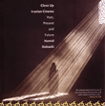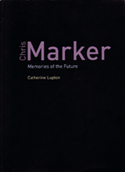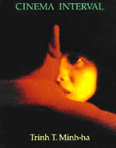Hamid Dabashi presents a comprehensive, passionate, and insightful personal account on the evolution of Iranian art cinema in Close Up – Iranian Cinema: Past, Present and Future. By presenting the works of key films and filmmakers within the contextual framework of Iranian history – in particular, from the state-sponsored, forced modernization programs initiated by the […]
Cinema of the Other Europe: The Industry and Artistry of East Central European Film by Dina Iordanova
In Cinema of the Other Europe: The Industry and Artistry of East Central European Film, Dina Iordanova proposes a reframing of Eastern European cinema (and by extension, film culture studies) away from conventional, western-centric paradigms that tend to evaluate post World War II cinema from the “other Europe” within the context of cold war politics […]
Chris Marker: Memories of the Future by Catherine Lupton
I have always felt an indefinable kinship towards Chris Marker’s films that were not particularly related to the overt intellectuality of his work or his espousal of left-leaning ideals. However, it was not until the first chapter in Catherine Lupton’s book on the filmmaker, Chris Marker: Memories of the Future that this gravitation took on […]
BFI Modern Classics: A City of Sadness by Bérénice Reynaud
In the BFI Modern Classics publication, A City of Sadness, Bérénice Reynaud provides a comprehensive, articulate, and insightful critical analysis of Hou Hsiao-hsien’s seminal and artistically groundbreaking film on the once-taboo subject of the ‘hidden’ history of Taiwan, providing a compelling examination of the film through the intrinsic social context of a culturally broader Chinese […]
Claire Denis by Judith Mayne
Claire Denis’ personal history as the oldest child of a colonial official stationed throughout outposts in French equatorial Africa is a biographical detail that is often only referenced within the context of her debut feature, Chocolat – a domestic situation that mirrored the filmmaker’s young life (that, as author Judith Mayne accurately points out, often […]
Cinema Interval by Trinh T. Minh-ha
An intrinsic aspect of Trinh T. Minh-ha’s cinema is her particularity of observation from a perspective that is neither of enlightened privilege nor indigenous intimacy, but rather, suspended between elements of objectivity and subjectivity, a gaze belonging to neither cultural insider nor curious outsider. By filming in this state of cultural hybridity, Trinh reassesses not […]





